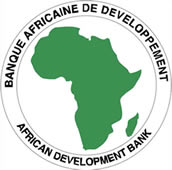In earlier times cash crops were usually only a small (but vital) part of a farm's total yield, while today, especially in developed countries, almost all crops are mainly grown for revenue. In least developed countries, cash crops are usually crops which attract demand in more developed nations, and hence have some export value. Issues involving subsidies and trade barriers on such crops have become controversial in discussions of globalization. Many developing countries take the position that the current international trade system is unfair because it has caused tariffs to be lowered in industrial goods while allowing for low tariffs and agricultural subsidies for agricultural goods. This makes it difficult for a developing nation to export its goods overseas, and forces developing nations to compete with imported goods which are exported from developed nations at artificially low prices.
In view of this, there are many investment opportunities in this sector which can help solve most of our problems and this includes investing in agriculture inputs such as improved seeds and agrochemicals which includes fertilizers, pesticides and herbicides. Veterinary drugs, vaccines and chemicals and among others.
Also another opportunity found in this sector is processing of agricultural product. Investors are also admonished to invest in Floriculture which offers a lot of opportunities as Ghana’s climate and topography make the country suitable for the cultivation of a number of exotic flowers. Species such as heliconia, caribea, celosia, curcuma, gladioli, hibiscus, roses, ornamental palms and ferns perform well under natural conditions. There is potential in the national, regional and European Union markets, investors are also encouraged to invest more in this aspect of the sector to promote exportation in the country. Examples include cocoa, beans, palm oil, pineapples, cotton, tomatoes, bananas, citrus fruits, coconuts, tobacco, cashew and fresh vegetable.
Notwithstanding, investors can also help vulnerable farmers financially or to focus on one farmer or group of farmers so as to promote cash crops and agriculture in general.
In addition, Investment opportunities exist in the processing industry of these crops to add value, reduce post-harvest losses, promote price stability and expand demand for local agricultural produce. For example, with the processing of cocoa beans into cocoa products and fruits into fruit juices among others.Technological and support services also require investment. Key areas are in the supply and installation of cold chain equipment, packaging and factory building technology.
This and many others are in stored to encourage investors to invest in this sector of the country.
RERENCE: Ghana Investment Promotion Center




































